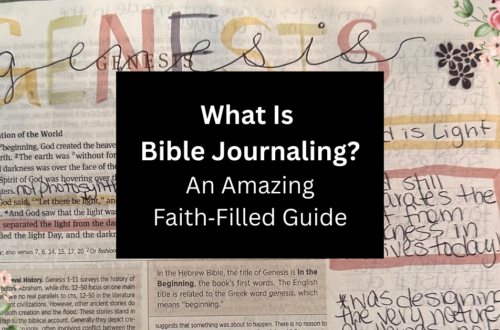Psalm 89 is a psalm of reflection and lament. It is attributed to Ethan the Ezrahite and emphasizes God’s covenant with David, highlighting the greatness of God’s faithfulness and love. The psalmist meditates on the promises God made to David, but it also wrestles with the apparent abandonment of those promises in the face of Israel’s current struggles. This psalm explores the tension between God’s past promises and present difficulties, acknowledging God’s sovereignty and justice even in times of doubt.
Background of Psalm 89
Psalm 89 opens with a celebration of God’s faithfulness, recalling the promises made to David and the greatness of God’s covenant love. The psalmist praises God’s righteousness, justice, and eternal reign. However, as the psalm progresses, the tone shifts. The psalmist expresses confusion and sorrow, questioning why God’s promises to David seem unfulfilled in the current crisis, which may be tied to the fall of Jerusalem or Israel’s defeat by enemies.
This psalm reminds us that even in moments of apparent loss or God’s silence, we can trust in His faithfulness and the truth of His promises.

What Does Psalm 89 Mean?
Psalm 89 contains both celebration and lament. The first half of the psalm (verses 1–37) focuses on God’s faithfulness to His covenant with David, recounting the promise that David’s line would endure forever. The second half (verses 38–52) contains a lament over the seeming failure of God’s promises, with the psalmist asking why God has allowed Israel to experience defeat and suffering.
- Verses 1–18: The psalmist begins with a declaration of praise for God’s faithfulness and righteousness, recalling God’s covenant with David.
- Verses 19–37: The psalmist recalls God’s promises to David, emphasizing the divine assurance that David’s descendants would reign forever, which contrasts with the current difficulties.
- Verses 38–45: The tone shifts to lament, as the psalmist questions why God has allowed Israel to be overtaken and David’s line to be seemingly forsaken.
- Verses 46–52: The psalmist concludes with a plea for God’s intervention, asking why God has hidden His face and forgotten His covenant promises.
Verse Mapping Psalm 89:1
“I will sing about the Lord’s faithful love forever; I will proclaim Your faithfulness to all generations.” (CSB)
- Word Study
- Sing – A joyful expression of praise. Singing is a way to declare what God has done and to meditate on His goodness.
- Faithful love – This refers to God’s steadfast, covenantal love. It is an enduring love that never changes, even in times of hardship.
- Proclaim – To declare openly, to announce. This is an active, outward expression of sharing God’s faithfulness.
- Generations – This indicates that God’s faithfulness is not just for the psalmist’s time but for all future generations.
- Cross-References
- Psalm 100:5 – “For the Lord is good, and His love is eternal; His faithfulness endures through all generations.”
- Lamentations 3:22–23 – “Because of the Lord’s faithful love, we do not perish, for His mercies never end. They are new every morning; great is Your faithfulness!”
- Revelation 15:3 – “They sang the song of God’s servant Moses and the song of the Lamb: ‘Great and awe-inspiring are Your works, Lord God, the Almighty; just and true are Your ways, King of the nations.’”
- Paraphrase “I will sing forever about the Lord’s enduring love, and I will tell future generations of His faithfulness.”
- Application This verse calls us to remember and proclaim God’s faithfulness. Even in the midst of hardship, we are encouraged to sing of God’s love and declare His faithfulness to others. God’s love is unchanging, and His faithfulness extends beyond our lifetime. We are invited to celebrate and testify to God’s goodness to all generations, encouraging others to trust in Him.
How Can We Apply Psalm 89 Today?
- Celebrate God’s Faithfulness Like the psalmist, we can choose to focus on God’s faithfulness even when circumstances are difficult. By remembering and singing about God’s love, we strengthen our own faith and encourage others to do the same. God’s faithfulness is constant, and it is worthy of our praise, no matter the situation.
- Proclaim God’s Promises The psalmist commits to proclaiming God’s faithfulness to future generations. We can share God’s promises with those around us, especially younger generations, helping them to understand that God’s word is reliable and enduring.
- Wrestle with Doubt and Difficulty Psalm 89 does not shy away from expressing doubt and sorrow. When life feels uncertain or God’s promises seem unfulfilled, we can take our questions and frustrations to God, knowing He is big enough to handle them. It is okay to lament, but we should always return to the truth of God’s faithfulness.
- Trust in God’s Timing While the psalmist expresses confusion over God’s apparent inaction, we are reminded that God’s plans unfold in His perfect timing. What may seem like a delay is actually part of God’s greater plan. We are called to trust that God’s timing is always right, even when it doesn’t align with our expectations.
- Live with Eternal Hope Psalm 89 emphasizes that God’s promises endure across generations. This gives us hope that God is working in ways that go beyond our lifetime. We can trust that the work God is doing in us and in the world has eternal significance.
Reflection Questions
- How have you experienced God’s faithfulness in your own life?
- What are some ways you can share God’s faithfulness with others, especially younger generations?
- When you face seasons of doubt or suffering, how can you remind yourself of God’s enduring love?
- How do you find hope in the midst of unfulfilled promises or unanswered prayers?
A Closing Prayer
Lord, I thank You for Your unwavering faithfulness and love. Even when I face difficult seasons or feel uncertain about Your promises, I trust in Your goodness and Your timing. Help me to proclaim Your faithfulness to others and to celebrate Your love, knowing that Your promises endure forever. I ask for the strength to trust in Your plan, even when I don’t understand it. Thank You for the hope I have in You, both now and for all eternity. Amen.
Final Thoughts
Psalm 89 encourages us to praise God for His faithfulness, even in times of uncertainty. The psalmist’s lament reminds us that it’s okay to wrestle with doubts and struggles, but ultimately, we are called to trust in God’s promises and His perfect timing. His love is eternal, and His faithfulness will never fail.





